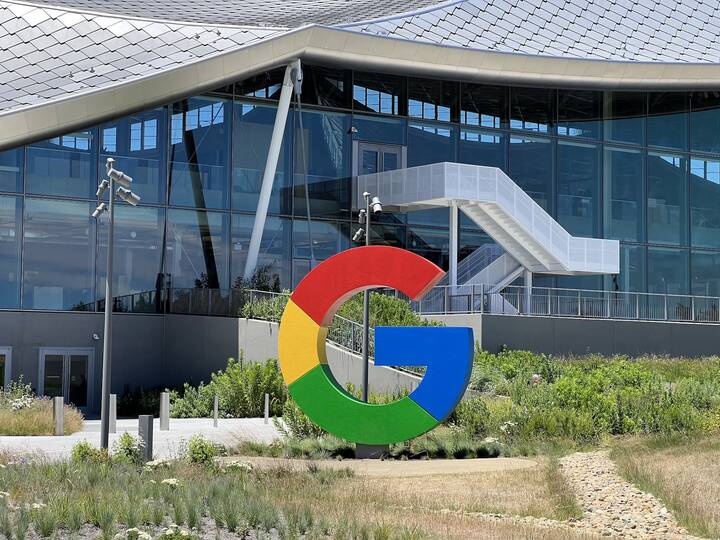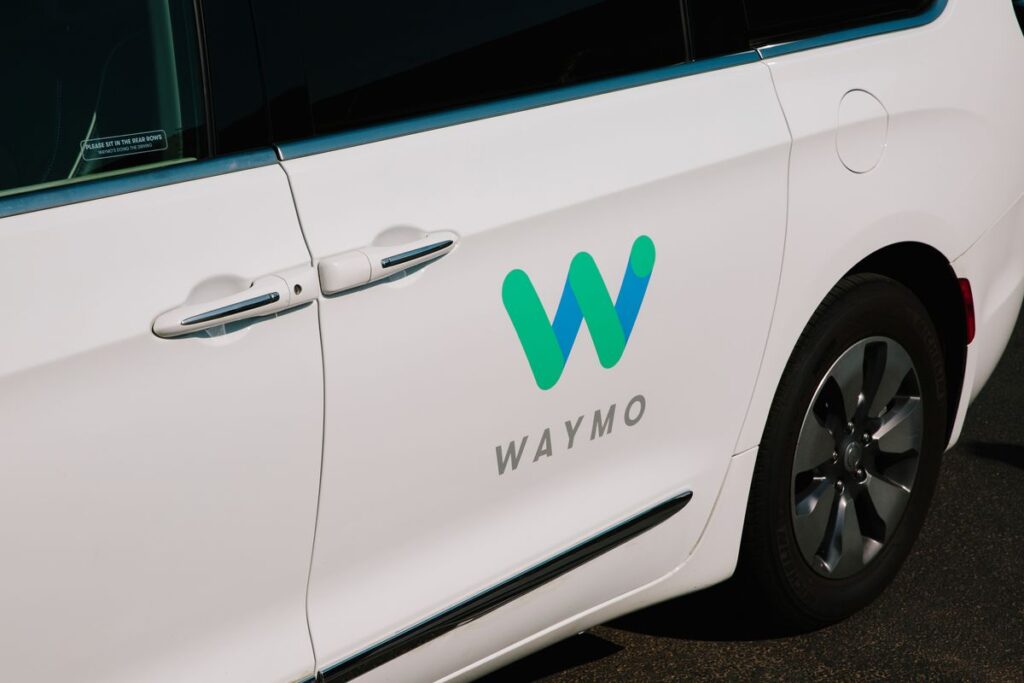Google-Parent Alphabet’s Partnership with AI Firm Anthropic Under Investigation in the UK

I am a law graduate from NLU Lucknow. I have a flair for creative writing and hence in my free time work as a freelance content writer.

I am a law graduate from NLU Lucknow. I have a flair for creative writing and hence in my free time work as a freelance content writer.

I am a law graduate from NLU Lucknow. I have a flair for creative writing and hence in my free time work as a freelance content writer.
Alphabet Inc. faced a significant blow as its shares plummeted by the most in a year on Wednesday following the release of its quarterly earnings report, which revealed weaker-than-expected profit in its cloud computing unit. This has raised concerns about Alphabet’s competitive standing in the cloud computing market, which is considered pivotal to its future success.

As Google’s flagship search business matures, investors have been looking to the cloud unit to spearhead growth. However, the cloud unit reported operating income of $266 million, falling significantly short of the estimated $434 million, igniting worries about Alphabet’s ability to catch up with cloud computing giants such as Amazon.com Inc. and Microsoft Corp.
Max Willens, an analyst with Insider Intelligence, emphasized the unpredictable nature of the cloud computing business, stating, “Cloud computing is a much lumpier business than advertising and one where Google is facing stiff competition. While the traction it has among AI startups may bear fruit in the long run, it is not currently helping Google Cloud enough to satisfy investors.”
Alphabet’s shares took a hit, dropping as much as 8.9% to $126.40 in New York, marking the most substantial decline since October 2022. This downturn follows a promising year, during which the shares had gained 57% up to the previous day’s close.
Ruth Porat, Alphabet’s President who is currently serving as the company’s acting Chief Financial Officer, attributed the cloud unit’s disappointing performance to some customers’ cost-cutting measures.
Nevertheless, Alphabet’s overall earnings report for the third quarter was generally strong. The company reported sales of $64 billion, surpassing the analysts’ consensus of $63 billion. The net income amounted to $1.55 per share, surpassing Wall Street’s estimate of $1.45 per share.
The search advertising business, where Google holds a dominant position, reported revenue of $44 billion, exceeding the average analyst projection of $43.2 billion. However, Google’s leadership must contend with challenges stemming from the rise of generative AI chatbots that offer more conversational responses to user queries.
Despite the cloud unit’s struggles, Alphabet’s leadership has affirmed their commitment to operating more efficiently and investing in emerging opportunities such as artificial intelligence. CEO Sundar Pichai stated, “We’ll do everything that is needed to make sure we have the leading AI models and infrastructure in the world, bar none.”
Additionally, Alphabet’s ongoing legal battle with the U.S. Department of Justice, concerning allegations of search market power abuse, has contributed to the uncertainty surrounding the company’s future. Analyst Evelyn Mitchell-Wolf from Insider Intelligence noted that the outcome of the trial could influence investor confidence in the sustainability of Google’s business model.
Also Read: Snap Returns to Revenue Growth on Improved Ad Business
On a more positive note, YouTube reported $8 billion in revenue, surpassing the average estimate of $7.8 billion. This indicates that the video-sharing platform is benefiting from the rebound in digital advertising spending.
Alphabet’s Other Bets, which encompass moonshot projects like Waymo (self-driving cars) and Verily (life sciences), generated $297 million in revenue but incurred a $1.2 billion loss, in line with analysts’ projections. Despite the headwinds facing its cloud unit, Alphabet continues to explore new avenues for growth and innovation beyond its core businesses.

I am a law graduate from NLU Lucknow. I have a flair for creative writing and hence in my free time work as a freelance content writer.
The parent company of google announced a 6 percent reduction in staff in its biggest round of job cuts, prolonging a recession among tech firms following record pandemic recruitment.
Alphabet Inc. stated that the job cuts would affect approximately 12,000 jobs all over various units and areas, though some areas, such as recruiting and projects beyond the firm’s core businesses, will have a greater impact.

According to individuals with knowledge of the situation, the job cuts attained the vice president level and impacted divisions such as cloud computing as well as Area 120, a company’s internal incubator that had previously faced cuts last year.
As per the report by Layoffs.fyi, which monitors media reports and company updates, the Google layoffs make January probably the worst month yet in a flood of technical layoffs that started last year. Microsoft Corp. announced this week that it would lay off 10,000 employees, the most in over eight years.
Wayfair Inc., a leading online furniture retailer, announced the layoff of about 10 percent of its working population, and Unity Software Inc., a provider of tools for developing videogames as well as other applications, also reduced its workforce.
Amazon.com Inc. announced layoffs of over 18,000 employees this past month, and Salesforce Inc. announced layoffs of 10 percent of its workforce. Meta Platforms Inc. announced a 13 percent staff reduction last year.
During the global epidemic, tech firms such as Google grew greatly as online life gained in popularity. Recent cuts are part of a broader shift toward profit protection and the end of a growth-at-all-costs period in tech.
Officials have recently stated that the company will be strengthening its belt, signaling the start of a new era of much more structured and cost-effective spending. However, the firm had not revealed as big cuts as its Silicon Valley peers.
Also Read: Netflix founder Reed Hastings stepping down as co-CEO
Google recruited vigorously as consumption for its services increased during the epidemic, resulting in a more than 50 percent increase in total Alphabet employee strength since the end of the year 2019.
The layoffs announced this week seemed to fall short of the nearly 12,800 employees Alphabet hired in the third quarter of last year.
“Over the past two years, we’ve seen periods of dramatic growth. To match and fuel that growth, we hired for a different economic reality than the one we face today,” Alphabet Chief Executive Sundar Pichai wrote in a message to employees sent out Friday and posted on the company’s website.
“I take full responsibility for the decisions that led us here,” Mr. Pichai wrote.
Source: wsj.com
Overhiring has emerged as a repeating message at technology firms in recent months, as executives realized that some of the hirings they did early in the disease outbreak to keep up with increasing demands for all things digital left them overstaffed as the business climate got ruined.
Salesforce Co-CEO Marc Benioff, Twitter Inc. co-founder Jack Dorsey and Meta Platforms CEO Mark Zuckerberg are among the officials who have apologised.

I am a student pursuing my bachelor’s in information technology. I have a interest in writing so, I am working a freelance content writer because I enjoy writing. I also write poetries. I believe in the quote by anne frank “paper has more patience than person
Tesla is very much ahead of its time in terms of autonomous driving technology. But names like Alphabet are also trying to expand in the very field and provide its customer with the best of them all. Alphabet Inc., the parent company of Google, has another subsidiary named Waymo, which dedicatedly works to developing autonomous driving technology. In fact, the said company also runs a commercial self-driving taxi service in the Arizona region, named Waymo One, the only self-driving taxi service. The taxis under this project runs without having a standby driver for emergencies. Apart from Waymo’s self-driving taxis, the software developed by the company is also used by some other car companies, like Stellantis, Jaguar, Daimler AG, Land Rover, Volvo, and Nissan-Renault.
About Waymo
Waymo LLC is a subsidiary of Alphabet Inc. and has its headquarters based in Mountain View, California, U.S. It is a 13-years-old company founded in January 2009 by Sebastian Thrun and Anthony Levandowski. Till 2016, Google was the parent company of Waymo when it started a self-driving car project in 2009, but in 2016 Alphabet became the parent company of the same, when the same project had a name change to Waymo. Dmitri Dolgov and Dmitri Dolgov (Co-CEO) Tekedra Mawakana are leading Waymo as the co-CEOs.
The basic concept behind the idea of Waymo is to avoid the accidental deaths that happen due to various negligence reasons of humans. The company makes use of artificial intelligence, sensors, and hardware-enhanced vision system to provide safer transit for both humans and goods.

Founding Waymo
Waymo wasn’t founded as a company but was launched as a project by Google in its Google X lab. The project was headed and launched by Sebastian Thrun, who had gained much experience in artificial intelligence after being a part of organisations like SAIL (Stanford Artificial Intelligence Laboratory) and Anthony Levandowski. During 2006-07, Google was already working on improving its maps and street view, and for that, the Street View team of Google has launched Ground Truth, a project that became the basis of Google’s self-driving program.
Anthony Levandowski, the other co-founder of Wymo, was also in self-driving vehicles and had built an autonomous two-wheeled motorcycle named Ghost Rider for the 2004 DARPA Grand Challenge. Being a Google employee, Levandowski sold his technology to Google, which was an addition to Google’s self-driving program. In 2012, Google obtained a driverless technology license from the Nevada Department of Motor Vehicles (DMV), and it carried out its first experiment with the self-driven car. The license was the first of its kind in America.
Under project Chauffeur, Google launched a new driverless car prototype (100% autonomous) without any steering wheel, gas pedal, and brake pedal in May 2014. Another prototype came in December with the name Firefly, mainly built for learning and experimentation. In 2015, the company introduced the world’s first fully driverless ride on public roads, and the experiment included no test driver.
This project Chaufwur was renamed Wayno in 2016 and was established as a start-up company as well as a subsidiary of Alphabet. By October 2017, the company was testing driverless minivans on roads, and in 2019, it started to build its cars in a Detroit manufacturing plant. Waymo also started integrating its technology into the existing car models rather than building new designs for them. In 2020, the company raised a sum of $3 billion from its various investors. The same year, Waymo also partnered with Volvo for the integration of its technology into Volvo’s vehicles.
The CEO at Waymo
Dmitri is a Russian-American businessman, whereas Tekedra has been a lawyer and a well-known businesswoman in America.
Dmitri is an alumnus of the Moscow Institute of Physics and Technology, where he earned a Bachelor of Science and a Master of Science degree in physics and math. He also got a PhD degree in computer science from the University of Michigan and a postdoctoral from Stanford University. He has vast experience in the field of self-driving technology and has worked at Toyota and Google.
Tekedra, on the other hand, was already working at Waymo as the COO before she held the post of CEO. She has also worked with companies like Steptoe & Johnson, AOL, Yahoo!, eBay, etc. Tekedra holds a Doctorate in law.

Yashica is a Software Engineer turned Content Writer, who loves to write on social causes and expertise in writing technical stuff. She loves to watch movies and explore new places. She believes that you need to live once before you die. So experimenting with her life and career choices, she is trying to live her life to the fullest.